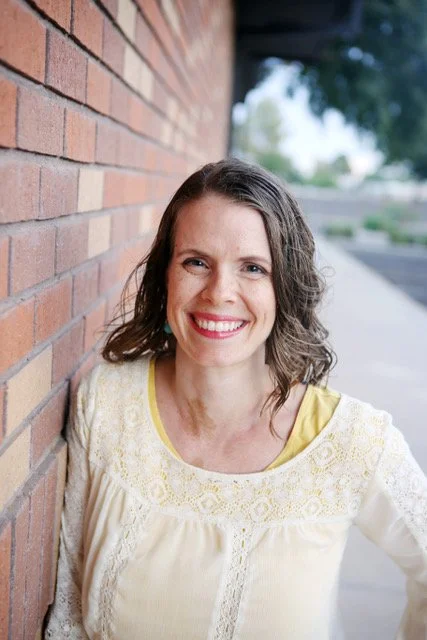Did You Mask Your True Self Too?
I’m both a highly sensitive person (HSP) and a neurodivergent person. Many of you reading this might be too; very often neurodivergent people are also highly sensitive.
So you might be able to relate: this high sensitivity made me feel the need to mask my true self from a really young age.
As a kid I could walk into a room and immediately pick up on the emotional climate, like when a teacher didn't like me or someone was mad at me. And I knew exactly what I needed to do to please the people in that room.
I could be who they wanted me to be. In exchange I felt safe. I felt loved. I felt valued.
But this wasn't a conscious choice. I didn’t realize I was doing it until looking back on it as an adult. It was just a habit that became part of me.
It wasn't until I was in my early 30s where I found myself feeling unhappy and didn't really understand why, so I started pursuing my healing journey.
Seeing Myself First, Not Accepting the Defaults of a Neuronormative Culture
In order for me to de-mask and let my true self be seen in the world I had to start to get to know and accept myself.
That took quite a bit of deconditioning. We've all been told the right way to do things. The good way, the best way.
“I really believed everyone outside of me had all the answers. I had no self trust. I was looking for everyone else to tell me who I was.”
And the truth is, all of those ways are really aligned with being neurotypical.
So if we're not neurotypical, it doesn't work for us.
If we’re accepting the defaults of the neuronormative culture, we're going to feel exhausted as neurodivergent people. We need to see ourselves first.
If we expect other people to see that the differences in our wirings and our needs and our ways of doing things is valid, shouldn’t we expect that for ourselves too?
Setting Healthy Boundaries
Healthy boundaries have been essential for me as I navigate this world as a highly sensitive and neurodivergent person.
Here’s what healthy boundaries look like for me:
Relationship dynamics with the people in my life where I value and express my own opinions, I value my own needs and desires, and I also am able to hold space for their boundaries.
Before I started setting boundaries like this I felt depleted and exhausted. I was unwilling to let people see me, so I wasn't even giving them a chance to show up for me in the way that I needed.
Boundaries helped me set the slower pace that I needed. I experience the world more intensely than average. I get easily overstimulated and I need to retreat to recharge. That's the way I'm designed.
“I’m attuned to my environment. I just need time to integrate and process. And now that I can see this sensitivity as a gift, I can start to say no to things that don’t fill me up so that I can save that energy to say yes to the things that do. ”
Emotional Regulation
When I feel overstimulated, my emotional regulation techniques are my reminder that I’m here for myself. Deep breaths, fresh air, short walks.
In moments of over-stimulation, we feel uncomfortable because we’re experiencing something unfamiliar to our nervous systems.
And our nervous system interprets us showing our true selves and de-masking as unsafe, because that's what we've internalized all the way back from our youth.
Emotional regulation shows our body that it is safe to be ourselves in the world. That it is safe to advocate for our own needs. It is safe to do things differently than the neurotypical way of being.
More Resources Mentioned In This Episode
Manage Big Feelings With Tapping: how your child can tap on different parts of their body to calm their nervous system.
You Might Also Enjoy…
Still curious about anything we mentioned today? I'd love to hear what's on your mind.
It's really a dream come true to have a platform to discuss these issues that are so near and dear to my heart with you. And I'm just so grateful that you're here with me today and ready to support each other on our journeys.



